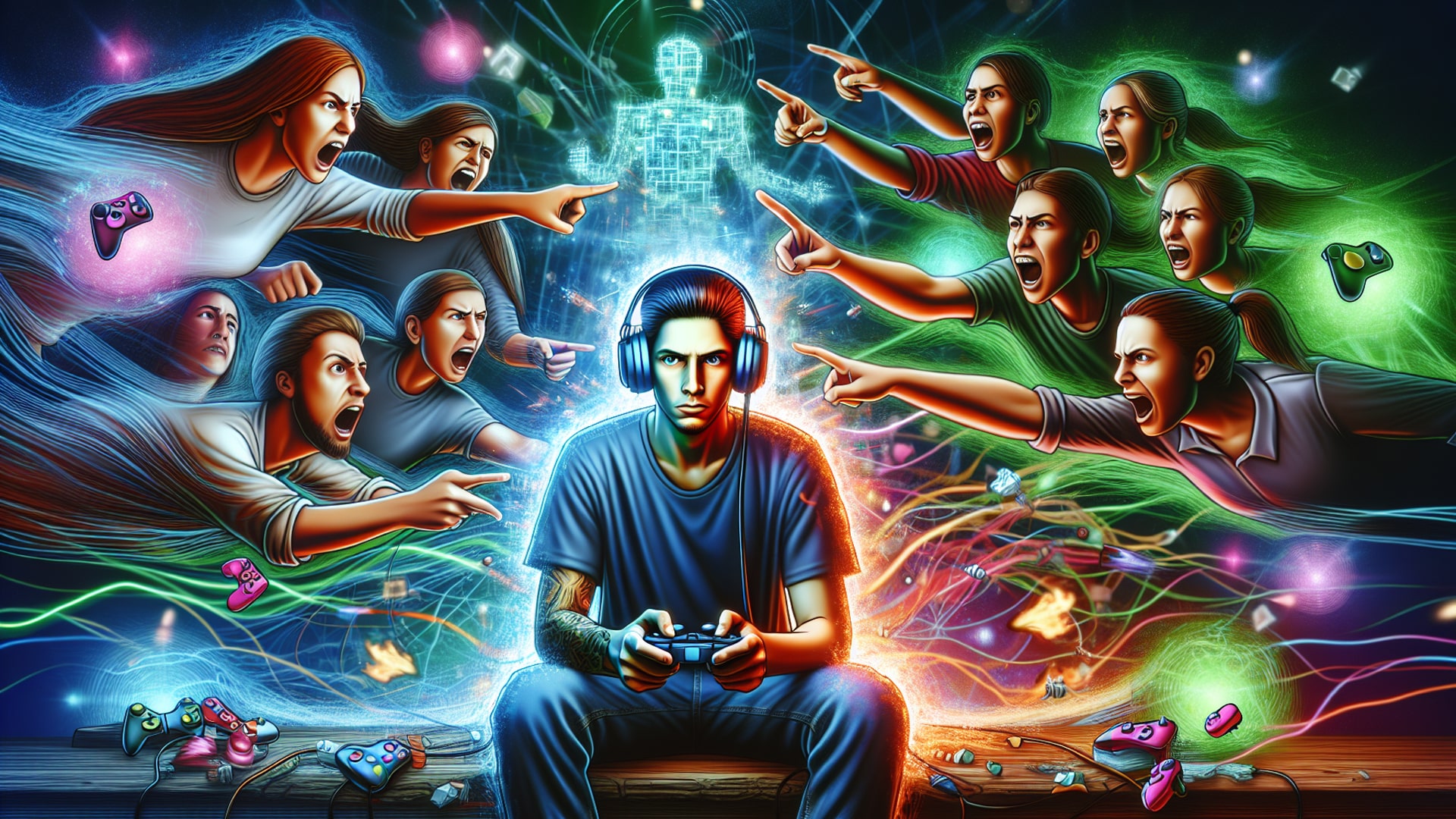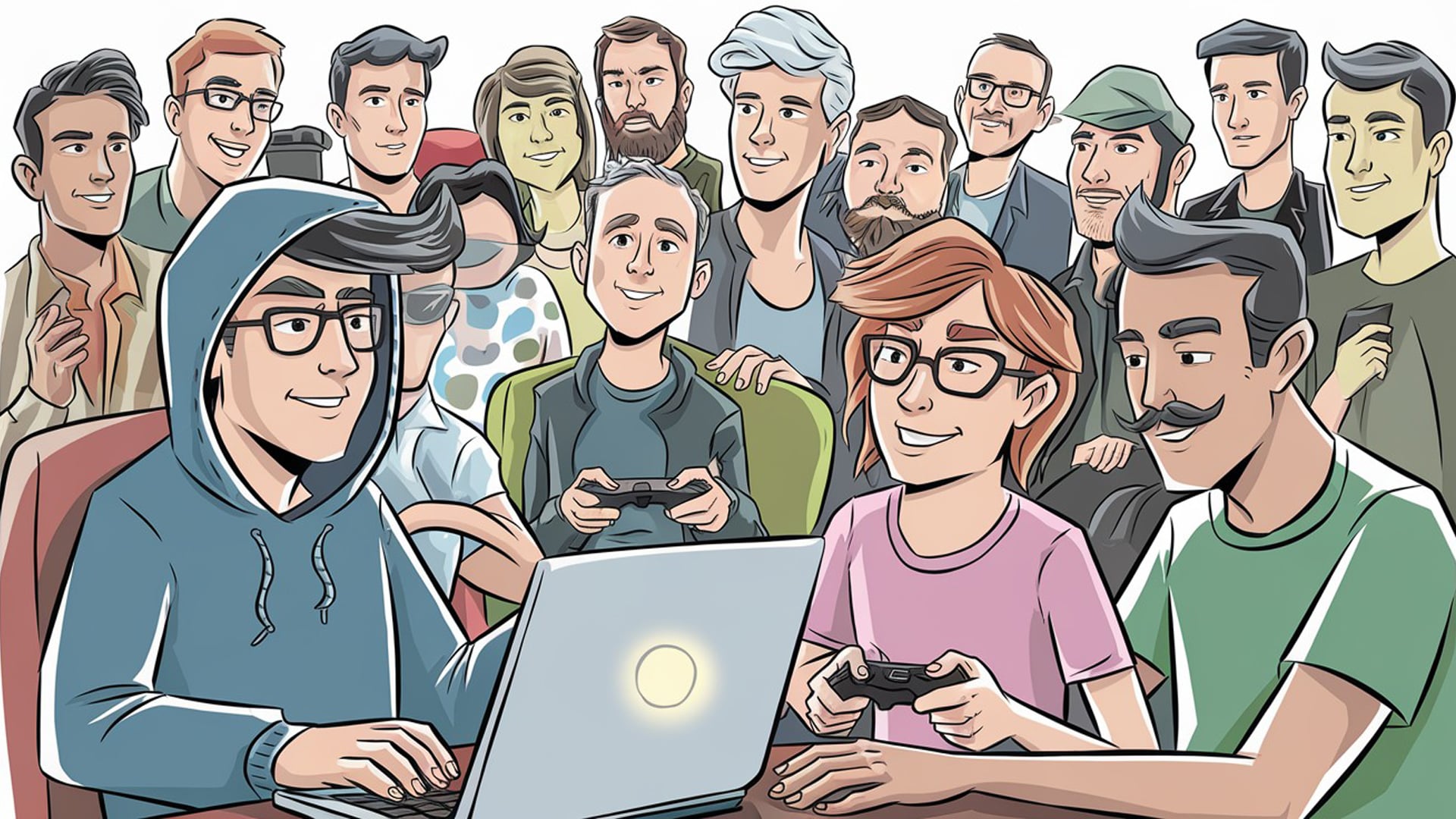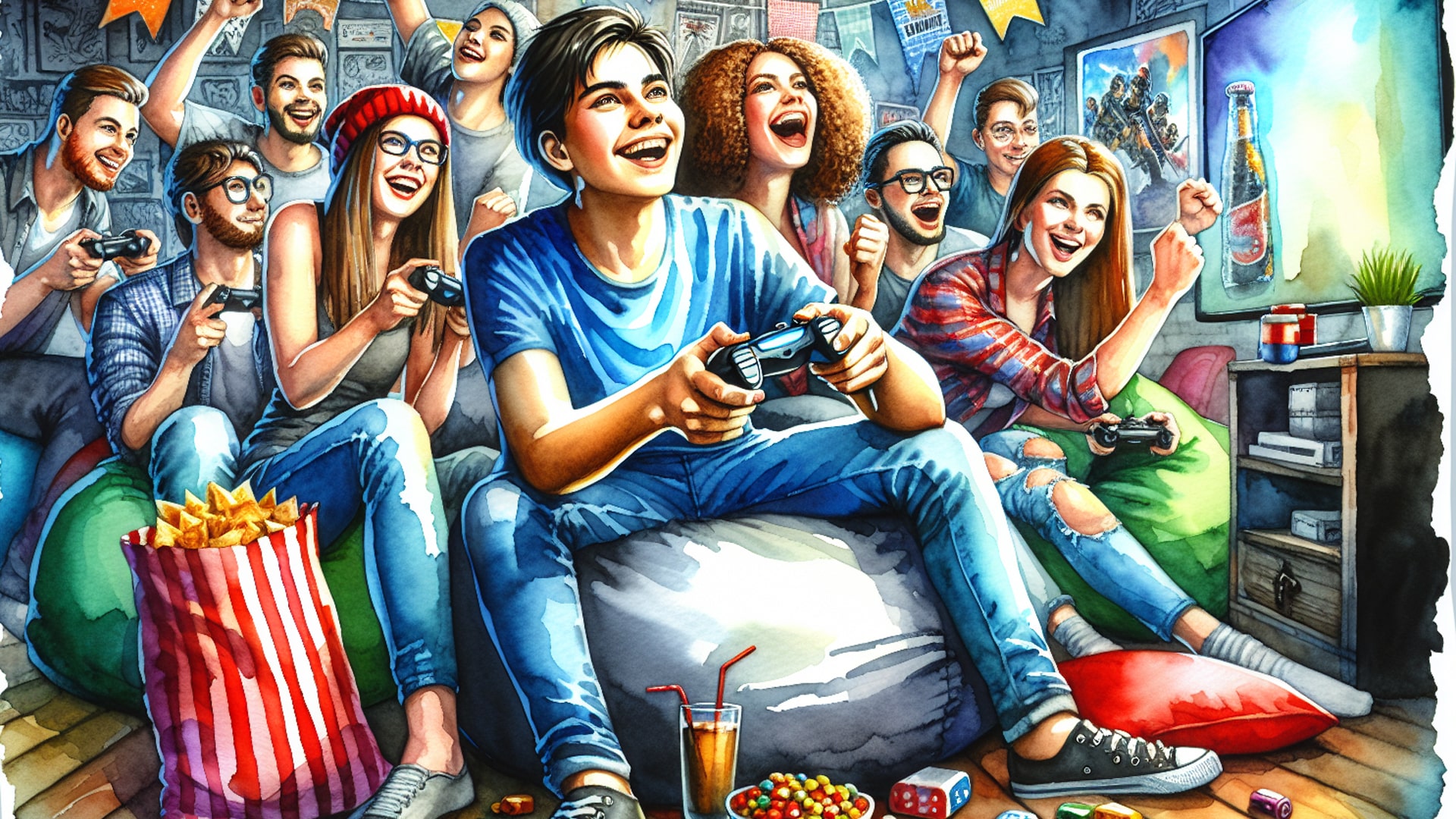Backseat Gaming Explained: The Good, The Bad, and The Annoying
Backseating, a phenomenon where one player offers unsolicited advice or commands to another player during gameplay, happens when someone watching a game gives unsolicited advice. This behavior can be helpful but often disrupts gameplay. In this article, we'll explore and give answers as to why people backseat game and how it affects gaming experiences.
Key Takeaways
- Backseat gaming involves spectators giving unsolicited advice to players, which can range from helpful tips to overwhelming distractions.
- Emotional investment and frustration often drive people to engage in backseat gaming, as they feel the urge to help or believe they could do better. For example, a backseat gamer might exclaim, 'why didn't you shoot him' during critical gameplay moments, highlighting the annoyance players feel.
- Setting clear boundaries and effective communication are essential in managing backseat gaming, ensuring a positive experience for both players and spectators.
Listen To The Podcast (English)
Disclaimer: The links provided herein are affiliate links. If you choose to use them, I may earn a commission from the platform owner, at no extra cost to you. This helps support my work and allows me to continue to provide valuable content. Thank you!
What is Backseat Gaming?

Backseat gaming occurs when spectators give unsolicited advice or instructions to someone playing a video game. The term is derived from 'backseat driving', where a passenger gives unwanted navigation advice, and likewise, backseat gaming involves a bystander offering unsolicited commentary to the player.
This behavior can happen in various settings, whether it's someone sitting next to you on the couch or viewers on a livestream instructing the player through chat. On platforms like Twitch, viewers frequently offer tips and strategies as the streamer plays.
Backseat gaming can significantly influence a player's decisions and involvement with their character in games like Skyrim and Warcraft. This phenomenon spans different gaming environments, from casual play sessions to professional esports. Regardless of the setting, the core experience remains: someone not directly involved in the gameplay feels compelled to offer advice, whether welcomed or not, as a gamer.
Why Do People Engage in Backseat Gaming?
Many individuals engage in backseat gaming due to emotional investment in the game's outcome. This investment may stem from a desire to help the player succeed or from enjoying the game more when they feel involved. People who have played certain games often feel emotionally invested and compelled to offer advice.
Frustration plays a significant role. Watching someone else play can be infuriating, especially if you believe you could perform better. This frustration often leads to the urge to offer unsolicited advice, hoping to steer the gameplay in a more favorable direction.
Additionally, some individuals struggle with impulse control, finding it hard to resist giving advice during gameplay. This lack of control makes it challenging for them to remain silent, even when their input is not needed or wanted.
The Impact of Backseat Gamers on Gameplay

Backseat gaming can both positively and negatively impact gameplay. Helpful suggestions from backseat gamers can guide players through difficult sections of a game, potentially easing frustration and improving the overall experience.
However, the negative aspects often outweigh the positives. Players may feel overwhelmed by the constant influx of unsolicited advice, disrupting their focus and enjoyment. For example, a backseat gamer might say, "why didn't you shoot him," which can be particularly frustrating during critical moments of action. This can lead to strained relationships, especially if boundaries are not respected.
Clear communication and setting boundaries are crucial to mitigating these negative impacts. Establishing and communicating your limits can prevent unwanted gaming advice from ruining your experience, helping to maintain a positive gaming environment.
Strategies for Dealing with Backseat Gamers
Backseating is a common issue in gaming where one player offers unsolicited advice or commands to another player during gameplay. Direct communication is necessary when dealing with backseat gamers. Expressing your discomfort and asking them to refrain from giving commands can effectively set expectations and manage the situation.
Timing is also important. Addressing the issue after a game round can minimize conflict and make the talk more productive. For instance, streamers can calmly explain during breaks why they prefer to make their own mistakes and learn from them.
In severe cases, more drastic measures might be necessary. Streamers can ban repeat offenders from their chat, ensuring that disruptive backseat gamers do not ruin the experience for others.
Setting Boundaries: How to Stop Unwanted Advice
Setting clear rules for backseat gaming helps manage expectations during gameplay. Streamers can specify in their broadcasts that they do not appreciate backseat gaming, thereby setting clear expectations for viewers. Setting boundaries also helps players maintain control over their character and gameplay experience.
For more persistent issues, blocking or muting backseat gamers can temporarily reduce unwanted advice. This allows the player to maintain control over their gaming environment and focus on gameplay.
Differentiating between tactical information and micromanaging is also beneficial. Explaining this distinction to friends can help them understand when their advice is helpful and when it becomes intrusive.
Moderating Backseat Gaming on Streaming Platforms
Backseat gaming often occurs in multiplayer settings and has grown with the popularity of live-streaming. Platforms like Twitch and YouTube have made it easier for viewers to engage in backseat gaming, contributing to the social dynamics of gaming communities. Viewers who have played the game often feel compelled to offer advice during live streams.
Moderators play a critical role by removing disruptive comments during live streams. This helps maintain a positive and enjoyable environment for both the streamer and the viewers.
Despite its potential for disruption, backseat gaming can also have positive aspects. Some gamers appreciate the interaction, as it creates a sense of community and shared experience, making the gaming session more enjoyable for everyone involved.
Embracing Backseat Gaming: When It Can Be Fun

Backseat gaming can enhance teamwork when communication is clear and involves the player's consent. Players can ask for specific help when needed, turning unsolicited advice into welcomed assistance.
Humor can diffuse tension and make interactions with backseat gamers more enjoyable in the car for every person involved. Light-hearted exchanges, like jokingly responding to a backseat gamer saying 'why didn't you shoot him' with a playful retort, can transform a potentially frustrating situation into a fun and engaging experience for the driver.
In certain situations, backseat gaming enhances enjoyment by fostering interaction and engagement between players and spectators. When done right, it adds an extra layer of excitement and camaraderie to the gaming session.
The Psychology Behind Backseat Gaming
The psychology behind backseat gaming, or 'backseating', shows that players often engage in this behavior due to a desire for control and a need to feel involved. This unsolicited advice, especially during critical gameplay moments, can be both annoying and disruptive.
Involving backseat gamers in decision-making can reduce their urge to give unsolicited advice. Making them feel included creates a more collaborative and less intrusive environment.
Respecting individual playstyles is essential for mitigating the negative effects of backseat gaming. Understanding and appreciating different playstyles can help foster a more supportive and enjoyable gaming atmosphere.
Examples of Backseat Gaming in Popular Games
In 'The Legend of Zelda: Breath of the Wild', viewers may suggest how to solve puzzles or defeat bosses, often leading to frustration or amusement for the player as they seek the answer. This can significantly impact the player's decisions and involvement with their character, influencing how they navigate the game's challenges.
In competitive games like 'League of Legends', spectators frequently backseat game by providing strategic advice on positioning and item builds, sometimes interrupting the gameplay flow.
In cooperative games such as 'Overcooked', backseat gaming can enhance teamwork when viewers offer helpful tips, but it can also cause conflict if players feel overwhelmed by suggestions.
Summary
The phenomenon of backseat gaming is a double-edged sword. While it can provide helpful guidance and foster a sense of community, it can also disrupt gameplay and cause frustration. For those who have played the game, backseat gaming can significantly affect the overall gaming experience, either enhancing it through shared enjoyment or detracting from it through unwanted interference. By understanding why people engage in backseat gaming and learning how to manage it, gamers can create a more enjoyable experience for themselves and their spectators.
Ultimately, setting clear boundaries and embracing the positive aspects of backseat gaming can transform this annoyance into an opportunity for better teamwork and interaction. So next time you encounter a backseat gamer, remember that with the right approach, it can become a fun and enriching part of your gaming journey.
Frequently Asked Questions
What is backseat gaming?
Backseat gaming, also known as backseating, happens when onlookers offer unsolicited tips and advice while someone else is playing a game. This phenomenon can be defined as a situation where one player offers commands or advice to another player during gameplay, often causing annoyance. It can be frustrating for the player, so it's best to keep those thoughts to yourself unless they're welcomed!
Why do people engage in backseat gaming?
People engage in backseat gaming because they're emotionally invested and often frustrated with the gameplay. It's their way of trying to help or influence the outcome! Those who have played certain games feel emotionally invested and compelled to offer advice based on their own experiences.
How can I deal with backseat gamers?
To effectively deal with backseat gamers, set clear boundaries and communicate openly about your gameplay style. Backseating, where one player offers unsolicited advice or commands to another player during gameplay, can be particularly annoying. Direct and clear communication is essential to manage it. Remember, it's your game, so prioritize fun and enjoyment over their suggestions.
Can backseat gaming be fun?
Absolutely, backseat gaming can be a blast when it boosts teamwork and creates engaging interactions among players. It adds an extra layer of fun to the experience! For instance, when a backseat gamer exclaims, "why didn't you shoot him," it can turn into a hilarious moment where everyone laughs and strategizes together for the next move.
Are there positive aspects of backseat gaming?
Absolutely, backseat gaming fosters a sense of community and connection among players, making the experience more engaging and enjoyable. It turns gaming into a social event, encouraging teamwork and shared excitement. Additionally, backseat gaming can enhance the player's involvement with their character by providing new perspectives and strategies, enriching their overall gaming experience.
Useful Links
Death Stranding Director's Cut - A Comprehensive ReviewExploring the World of The Witcher: A Comprehensive Guide
Mastering Baldur's Gate 3: Winning Tips and Strategies
Maximize Your Play: Ultimate Guide to Prime Gaming Benefits
Author Details
Mazen (Mithrie) Turkmani
I have been creating gaming content since August 2013, and went full-time in 2018. Since then, I have published hundreds of gaming news videos and articles. I have had a passion for gaming for more than 30 years!
Ownership and Funding
Mithrie.com is a Gaming News website owned and operated by Mazen Turkmani. I am an independent individual and not part of any company or entity.
Advertising
Mithrie.com does not have any advertising or sponsorships at this time for this website. The website may enable Google Adsense in the future. Mithrie.com is not affiliated with Google or any other news organization.
Use of Automated Content
Mithrie.com uses AI tools such as ChatGPT and Google Gemini to increase the length of articles for further readablity. The news itself is kept accurate by manual review from Mazen Turkmani.
News Selection and Presentation
The news stories on Mithrie.com are selected by me based on their relevance to the gaming community. I strive to present the news in a fair and unbiased manner.

